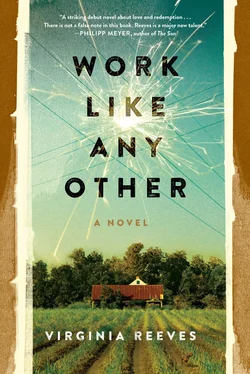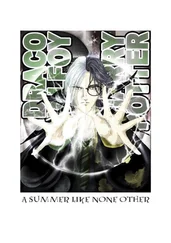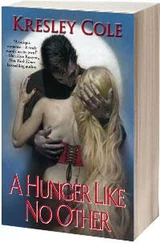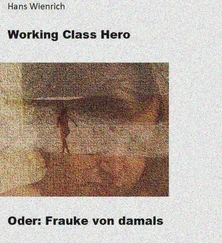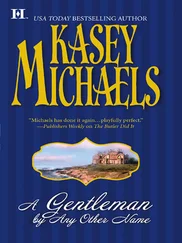“That’s exactly how it was by the way my father described it.”
The official body count was 128. Only 5 of those were free men. The other 123 were convicts, like Wilson now. The mine suffered little damage and started back up ten days later. It would’ve been sooner, but they’d had to wait on another shipment of prisoners.
“How could you live with him?” Marie had asked Roscoe. How could she live with him ? This murderous past, so deeply contrary to her own, should have been enough to stall their courtship.
“I was already set on leaving when my father came home with the story,” Roscoe told her. “My apprenticeship with Wheeler was waiting for me in Birmingham.”
So he’d escaped, and Marie had forgiven him his father. She’d been wrong, she could see now. Roscoe had ended up doing the exact same thing. He’d used Wilson to meet his own ends, without thinking of the consequences. He’d wanted his electricity so badly that he’d sacrificed Wilson to get it. And not just Wilson, but George Haskin. Marie had read the accounts in the papers, all the damage done to that poor boy’s body. If Roscoe had been content to be a farmer, then none of this would have occurred. If he had shifted the narrative of his life, drawing his strength from his wife and son rather than his lines, then they could have quieted Roscoe’s past completely and replaced it with Marie’s, with Wilson and Moa and the kids, the farm and the library, big meals and long days.
She could have forgiven him the other pieces, too, the parts of her body that were lost, all those children they didn’t have, those years in the village when he was so far away, so distant, so deeply committed to his lines and mechanisms and turbines while she clung to their son, their only child, dear Gerald, her boy.
Marie knew that some threads of their story weren’t Roscoe’s to own, just as she knew her resentment was rarely rational. At moments this had been clear, long stretches, even, such as these past couple years with the lines and the thresher and the farm’s success. She had allowed herself to float on their prosperity, to hide her questions. She had kept quiet about the simple bills that varied so greatly from the figures the prosecution provided at Wilson’s trial, never demanding to know why theirs was the only farm with electricity. She had allowed the secret, owned it, held it, and she’d done that in order to see her husband as a man she loved, a man who spent time in her father’s library, identifying and pressing plant clippings, a man she chose. Her father had insisted that she choose the man she would marry. “None of this assigned nonsense. None of this stability and household order. You pick the man you want to spend your life with. That’s what your mother did. God knows why she chose me, but it was her choice.” Marie missed her father. She missed Roscoe, too, but only in isolated scenes — there along the Coosa River where they would walk, an afternoon here in the farmhouse in their shared bed, the kitchen of their village house, infant Gerald in his arms. When she thought of him whole, though, she cringed. As a whole man — full up of his past and his choices and his actions — she wanted nothing to do with him.
April brings a stretch of heat that lingers so thick and hot even the cows complain. The early calves exchange their bucking and snorting for the low moans of their mothers, and the herd clumps together in the shade of the buildings and trees.
Ed’s time is close. The warden and his men have finished their tests on his chair. It is painted its bright yellow. We even know the first man they’re going to put in it. He has been here since January, and we don’t know him except by his name and crime. Horace DeVaughn. The name is as famous as Taylor’s nineteen steps, whispered and passed along the cell rows.
We have heard that DeVaughn is a murderer, that he killed two folks up in Birmingham.
DeVaughn has never left that first stop in the detention house. I wonder if they bothered to take his history, or if they assumed they already knew it. The men scheduled for execution have their own row in that house, a floor above the dark row of solitary cells. All of those are singles, so there is space, at least.
They will execute him sometime between midnight and daybreak, and if it all goes well, they will give Ed his furlough. I have drawn directions to Marie’s land and tied up a bundle of letters I’ve refused to send after the first year’s went unanswered. I want to know my words have been delivered, that Marie’s silence isn’t born of a delivery error or a negligent postmaster.
“You think a whole year’s worth of letters got lost?” Ed asked once.
“No.”
Ed clapped me on the back. “Just need the lie, then, don’t you? I tell you what — let’s make it a good lie, how ’bout? Let’s put some villain in the mix, some bastard lying in wait for the post, intercepting every letter that comes through. See, he’s got eyes for your lady, and he can’t have your lofty words tickling her ear. He’s gotta keep you quiet. Every day, he sits there, jumping that poor deliveryman, until the man tires of it and starts pitching your letters himself.” Ed smiled. “Yeah? It’s good, isn’t it?”
“No.”
“Hell”—he laughed—“you don’t know.” Then he got himself serious. “Honestly, Ross, I’m sorry for it all — whatever the reason. It’s a bloody shame.”
I thanked him.
“And I’m happy to deliver your letters. I’ll beat the little bastard should he try to get at them before they’ve reached your wife’s hands.”
“I know you will.”
For a moment here, waiting for the warden to come for Ed, I worry about my wife and my friend, alone there in the house that was once mine. Ed is tall and wide in the shoulders, thicker than me. I don’t know if he’s the sort Marie would be looking for, but his mere existence in my old home jars me. Just for a moment. Just now. Then, it is gone. Wherever Marie’s mind is, Ed’s is on the ocean. He will leave my letters and push himself east.
He’s cleared his bunk of anything personal, and it is a sleepless night, this last of Horace DeVaughn’s.
“Do you think we’ll know?” he whispers to me. “Think we’ll know when they do it?”
If every light in the cell house were blazing, we might see the bulbs weaken under the pull, but with dark on us and few other demands on the current, I don’t know.
“Watch the outside lights,” I tell Ed. “They may dim a bit.”
Our windows face the oak grove and the front guard tower. The globes at the entrance glow all night, and the guard-tower lights its beam once every quarter hour to draw across the cell house and the wall, a flash through our windows, out the interior bars, across the well. Were it to linger, it could be the moon, this ghostly light, white-blue and pointed. It shines on quiet places. The outsides of these cells and walls are empty. We are never there. We do not escape from the cell house.
But tonight is different.
“Do you think I’ll feel it?” Ed asks.
“You?”
It is not a question, though, because Ed is still talking. “I think I will. I think I’ll know. I’m scared of it, Ross.”
The light passes.
I imagine the current running through Ed’s chair, running through Horace DeVaughn, all that voltage pushing through his body, his blood and muscles becoming reluctant conductors. His veins go dark, like George Haskin’s, his heart and brain trying to quiet the current, everything lit like a filament, a bulb about to burst. I see the current knocking out the power all round the perimeter, deadening the heat in those lines at the top of the wall, silencing the siren. We would pry loose the metal grates at our windows and shimmy down the brick sides of the house, men pouring out like roaches and mice, our fingers in the cracks like claws in bark. We’d build steps out of tar, using them to climb. We’d be down and over and out before anyone knew. The tower light would trace paths in the leaves overhead, shining on the same brick and cement, unaware. Everyone would be looking at Horace DeVaughn, no one left to catch us.
Читать дальше
